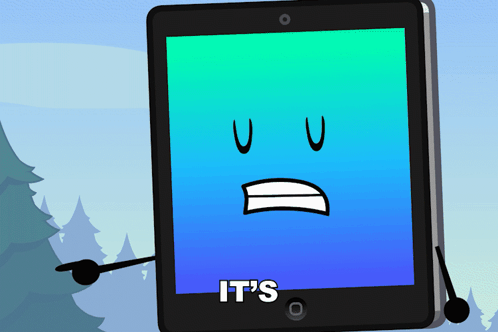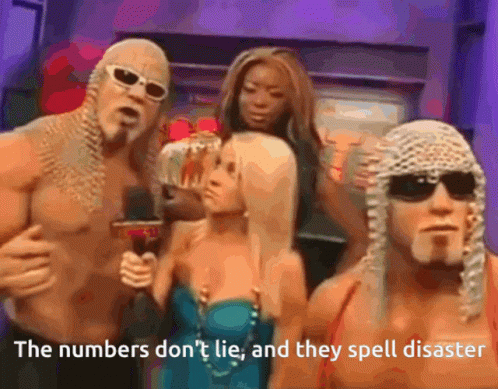You Should Take A Zero Day For Yourself
These are three things you should do, every 90 days, to manage your phone, your money, and the Internet-connected devices in your life.

Above: If you don't like to read, you can listen to this post.
Zero Day doesn't only refer to a terrible Netflix series starring Robert DeNiro.

A Zero Day is also something we suggest you take every 90 days.
But before we get to that, we want to highlight what an actual zero-day is.
Zero-Day — note the hyphen — is shorthand for Zero-day vulnerability.
And in the simplest terms, a zero-day vulnerability refers to a bug in a program you're using.
One that you don't know about, but a bad actor does.
And that bad actor could use that vulnerability to harm you.
This is why it's a good idea to shut down your devices once a day.
(Preferably three hours before bed.)
Doing so will give your operating system a chance to install new updates, which usually includes patches for zero-day vulnerabilities.
Make sense?
Good. Because at Stupid Sexy Privacy, when we mention a Zero Day, we're talking about something new.
Privacy Tip: Take A Zero Day Every 90 Days

A Zero Day is a day you put on your calendar, every 90 days, to accomplish three important goals:
- Review the Apps on your phone.
- Review your Bank Statements.
- Make sure the software is up to date on all of your Internet-connected devices.
We'll start with the Apps on your phone.
- If you don't know why an app is on your phone, the best time to delete it is now.
The second best time is during your Zero Day.
Things are expensive right now.
But if you can, you should take yourself out to lunch, and use that time to look through all the apps on your phone.
As you do so, you should ask yourself:
- Why is this app on my phone? If there's no answer, remove it.
- Does using this app make me happy? If the answer is no, remove it.
One of the reasons we recommend a zero day every 90 days is so that you can save up for taking yourself out to lunch.
This should be a moment to ...

But we know money is tight.
So if that's the case, get yourself to a local park instead.
The goal is to get yourself somewhere where you're distraction free and practicing solitude.
There's a difference between loneliness and being alone.
Being alone encourages self-reflection, and an opportunity to relax, in a world where we're bombarded by fascist propaganda.
- Where's your money going?
These days, between By Now, Pay Later grifts and every company wanting subscription revenue, it's easy to lose track of your money.
Every 90 days, you should print the last three months of your bank statements and credit card charges.
If you have a budget, this is a good practice to make sure you're staying within it. It's also good practice to see if your budget is realistic or not.
If you don't have a budget, this is a good chance to find things you can cut back on.
(No. I'm not going to tell you to "stop getting lattes." I suggest using a Money Dial instead. We'll talk about that later.)
If you don't have a budget, this is also a good chance to identify irregular expenses you wind up paying every 90 days, so that you can budget for those expenses when they do arrive.
And of course, going through this process will also help you spot and report any fraudulent charges, as well as cancel any services you no longer use.
- Check That Router, Brother
We're going to talk about Internet-connected devices in your home later. For now, the important thing is to use the Zero Day to make sure each Internet-connected device in your home has the most up to date software.
So if you use a TP-Link Archer router, for example, and you've got their Tether App, the Zero Day is the day you should that app and make sure its software is up to date.
Ditto with that humidifier.
Yes. Even the humidifier is connected to the Internet these days.
What a time to be alive.
-BJ
And Now, for our Friends Who Speak Spanish ...
Esta es una traducción proporcionada por IA. Disculpa por cualquier error; si quieres reportar errores en la traducción, contáctanos en inglés a stupidsexyprivacy@duck.com.
Zero Day no solo se refiere a una terrible serie de Netflix protagonizada por Robert De Niro.
Un Zero Day también es algo que te sugerimos tomar cada 90 días.
Pero antes de llegar a eso, queremos resaltar lo que es un verdadero zero-day.
Zero-Day — nota el guion — es una abreviatura de vulnerabilidad de día cero.
Y en términos simples, una vulnerabilidad de día cero se refiere a un error en un programa que estás usando.
Uno que no conoces, pero un actor malintencionado sí.
Y ese actor malintencionado podría usar esa vulnerabilidad para hacerte daño.
Por eso es una buena idea apagar tus dispositivos una vez al día.
(Preferiblemente tres horas antes de dormir.)
Hacerlo le dará a tu sistema operativo la oportunidad de instalar nuevas actualizaciones, que generalmente incluyen parches para vulnerabilidades de día cero.
¿Tiene sentido?
Bien. Porque en Stupid Sexy Privacy, cuando mencionamos un Zero Day, estamos hablando de algo nuevo.
Consejo de Privacidad: Toma un Zero Day Cada 90 Días
Un Zero Day es un día que pones en tu calendario, cada 90 días, para lograr tres objetivos importantes:
- Revisar las aplicaciones en tu teléfono.
- Revisar tus estados de cuenta bancarios.
- Asegurarte de que el software esté actualizado en todos tus dispositivos conectados a Internet.
Comenzaremos con las aplicaciones en tu teléfono.
- Si no sabes por qué hay una aplicación en tu teléfono, el mejor momento para eliminarla es ahora.
El segundo mejor momento es durante tu Zero Day.
Las cosas son caras en este momento.
Pero si puedes, deberías salir a almorzar y usar ese tiempo para revisar todas las aplicaciones en tu teléfono.
Mientras lo haces, deberías preguntarte:
- ¿Por qué está esta aplicación en mi teléfono? Si no hay respuesta, elimínala.
- ¿Usar esta aplicación me hace feliz? Si la respuesta es no, elimínala.
Una de las razones por las que recomendamos un zero day cada 90 días es para que puedas ahorrar para salir a almorzar.
Este debería ser un momento para...
Pero sabemos que el dinero está ajustado.
Así que si ese es el caso, ve a un parque local en su lugar.
El objetivo es llevarte a un lugar donde estés libre de distracciones y practicando la soledad.
Hay una diferencia entre la soledad y estar solo.
Estar solo fomenta la autorreflexión y una oportunidad para relajarse, en un mundo donde estamos bombardeados por propaganda fascista.
- ¿A dónde va tu dinero?
Estos días, entre las estafas de "Compra ahora, paga después" y cada empresa queriendo ingresos por suscripción, es fácil perder el rastro de tu dinero.
Cada 90 días, deberías imprimir los últimos tres meses de tus estados de cuenta bancarios y cargos de tarjetas de crédito.
Si tienes un presupuesto, esta es una buena práctica para asegurarte de que te mantienes dentro de él. También es una buena práctica ver si tu presupuesto es realista o no.
Si no tienes un presupuesto, esta es una buena oportunidad para encontrar cosas en las que puedes recortar.
(No. No te voy a decir que "dejes de comprar lattes." Sugiero usar un Dial de Dinero en su lugar. Hablaremos de eso más tarde.)
Si no tienes un presupuesto, esta también es una buena oportunidad para identificar gastos irregulares que terminas pagando cada 90 días, para que puedas presupuestar esos gastos cuando lleguen.
Y, por supuesto, pasar por este proceso también te ayudará a detectar y reportar cualquier cargo fraudulento, así como a cancelar cualquier servicio que ya no uses.
- Revisa ese Router, Hermano
Vamos a hablar sobre dispositivos conectados a Internet en tu hogar más tarde. Por ahora, lo importante es usar el Zero Day para asegurarte de que cada dispositivo conectado a Internet en tu hogar tenga el software más actualizado.
Así que si usas un router TP-Link Archer, por ejemplo, y tienes su aplicación Tether, el Zero Day es el día en que deberías revisar esa aplicación y asegurarte de que su software esté actualizado.
Lo mismo con ese humidificador.
Sí. Incluso el humidificador está conectado a Internet en estos días.
Qué tiempo para estar vivo.





